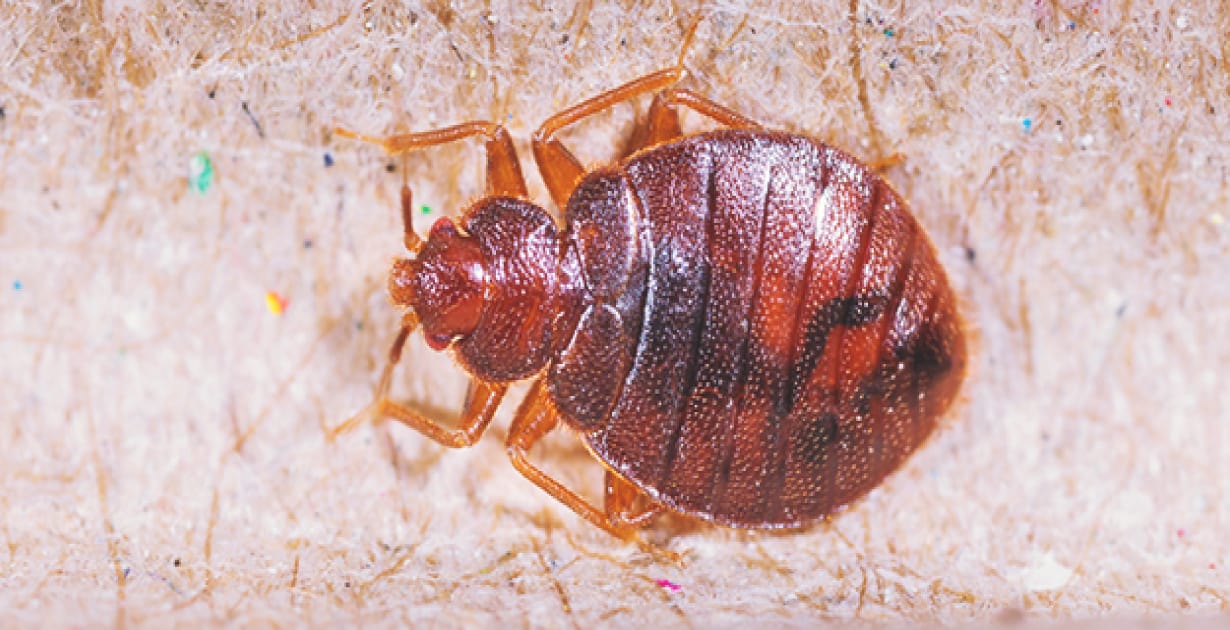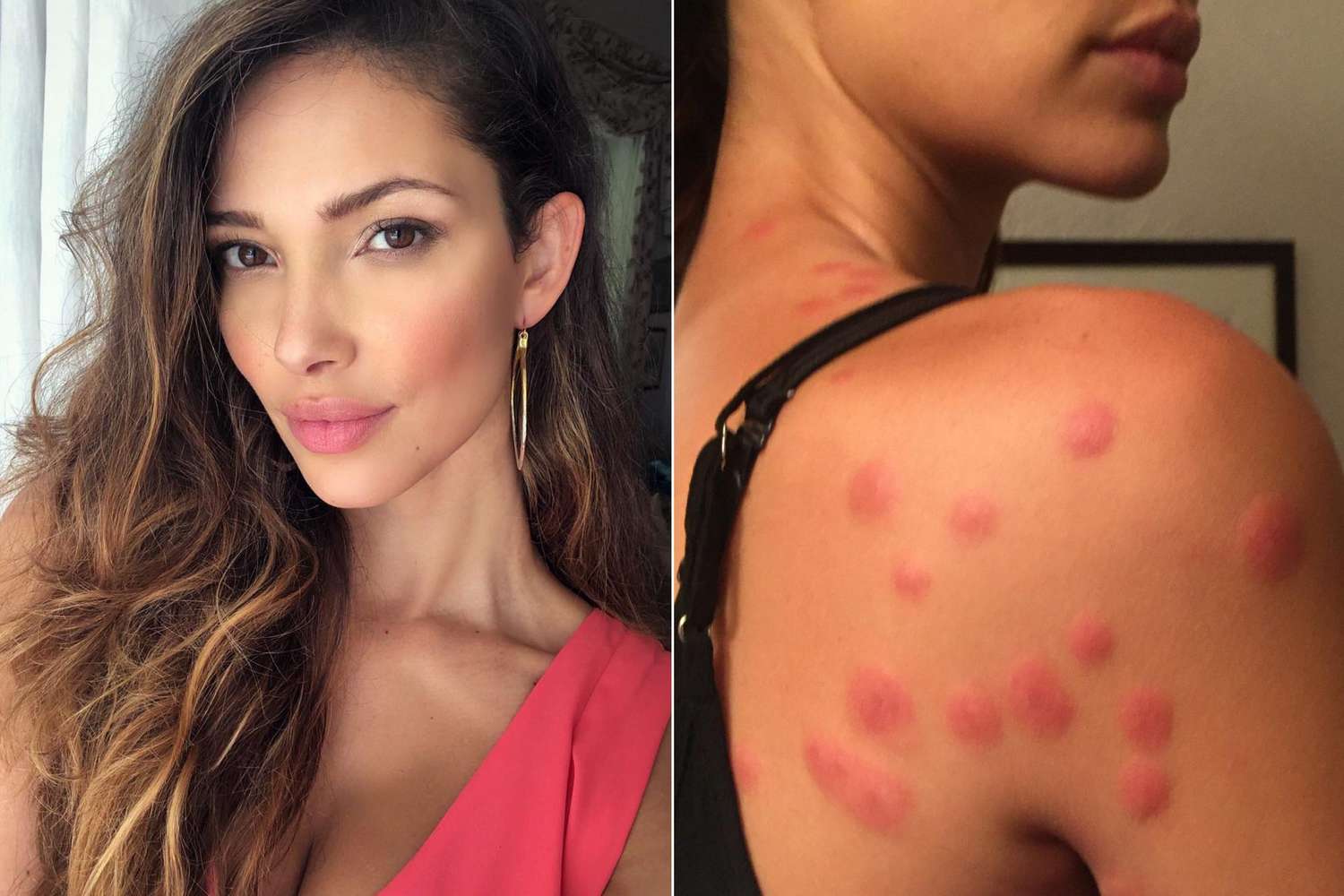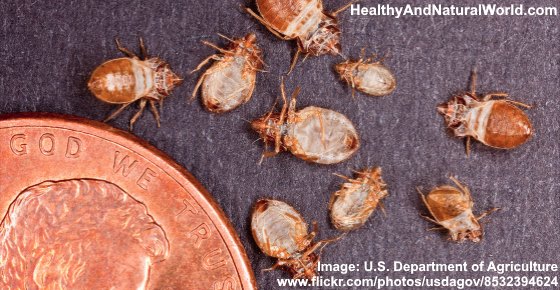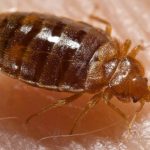
Will Coconut Oil Keep Bed Bugs From Biting
The U.S. Department of Agriculture claims that coconut oil repels bugs better than DEET. Source: The study found that coconut oil contains fatty acids that repel bed bugs, ticks and flies.
Coconut oil can be used on your skin to stop mosquitoes from biting you if they are present in your home.
Coconut oil should be natural, just like essential oils.
Coconut oil is sticky and has a strong smell. Coconut oil can make your bedsheets and clothes smell coconutty.
There is a high-quality coconut oil, such as COCO & CO, that is non-greasy, not-smelly and 100% pure. They are effective in keeping bed bugs away.
Coconut Oil Compounds Repel Insects Better Than Deet
Sandra Avant Coconut oil-based repellents are more effective than DEET in repelling blood-sucking insect bites, according to the U.S. Department of Agriculture (USDA). DEET has been the standard for insect repellents for more than 60 years. It is the most durable and effective available. There is a growing interest in plant-based repellents, which are more effective and last longer, due to increasing regulations and public health concerns regarding synthetic insecticides such as DEET.
Recent research by USDA's Agricultural Research Service ( ARS ), identified certain coconut oil fatty acid that are strong repellency against many insects, including ticks, biting flies, and bed bugs. These pests can carry diseases to humans and other animals.
Junwei (Jerry Zhu), an entomologist, and a team of scientists from the ARS Agroecosystem Management Research Unit, Lincoln, Nebraska found that coconut oil compounds had been proven effective against bed bugs and biting flies for up to two weeks. They also proved resistant against ticks in laboratory tests for at least one week. The compound also showed strong repellency against mosquitoes when applied topically with higher levels of coconut oil compounds.
Many collaborators and scientists were part of the team at these ARS locations:
Peoria, Illinois: National Center for Agricultural Utilization Research
Invasive Insect Biocontrol and Behavior Laboratory, Beltsville, Maryland; and Center for Medical, Agricultural, and Veterinary Entomology, Gainesville, Florida.
Some people are hesitant to use DEET, and instead resort to herbal remedies or plant-based repellents. Zhu pointed out that most plant-based repellents currently on the market work only for a very short time.
Zhu stressed that coconut oil is not an insect repellent. The coconut oil-derived free fatty acids mixture lauric acid capric acid, caprylic acid and caprylic, as well as the corresponding methyl ester, provides strong repellency to blood-sucking insect. Field trials revealed that this all-natural formula can protect cattle from stable flies for as long as 96 hours, or four days.
DEET was only 50% effective against stable fly infestations, but the coconut oil compound was over 95 percent.
DEET was ineffective against bed bugs and ticks after three days. Coconut oil compound, however, lasted approximately two weeks. The coconut oil fatty acids provided more than 90 percent repellency against mosquitoes, including Aedes Aegypti (the mosquito that can transmit Zika virus).
Coconut oil can repel bed bugs from biting
Coconut oil can be applied topically to skin. It repels bed bugs. Coconut oil's essential fatty acids are irritating to bed bugs that eat a liquid-based diet.
These fats are also anti-pesticides. While it will be uncomfortable to have oil on your skin, this substance can actually repel bed bugs.
Apply the oil to any areas that are exposed to the sun during sleep. Because of the thick, dexterity and versatility of coconut oil it can also be used for keeping bed bugs away from your bed legs.
Diy Coconut Oil Bug Repellent
This homemade coconut oil bug repellent recipe will make your next summer hiking trip more fun than a test of your insect-swatting skills.
Ingredients:
geranium essential oil citronella essential oil
20 drops lemon eucalyptus essential oil lavender essential oil rosemary essential oil
1 cup virgin coconut oil
Instructions:
Mix all essential oils with coconut oil and stir well to combine.
When you are outdoors, apply regularly to all exposed skin.
Coconut oil can repel bed bugs from biting
Coconut oil can be used to soothe and heal all types of insect bites. It protects, heals, and prevents infection. Coconut oil has both antibacterial and antifungal qualities. You can also prevent mosquito bites by applying coconut oil to your body. Coconut oil can be used to treat bug bites. Coconut oil is a great base oil (carrier oil), for essential oils. I'll soon be discussing homemade bed bug repellents using coconut oil and essential oils.
Will Coconut Oil Keep Bed Bugs From Biting


Coconut oil can keep bed bugs from biting
Probably, but there are no experiments to prove this. Coconut oil is thought to make your skin too slippery to attract insects or pests. But again… there isn’t really any research proving this is true. The bed bug lives off human blood and prefers to be sheltered in mattresses or beds frames. This is because they have the warmth to sustain themselves. It is a good choice because of its low molecular weight, coconut oil can penetrate into cracks and crevices other oils may not be able to. Coconut oil should not be used on the mattress or anywhere else. You don’t need to worry about bed bugs biting you as you’re not going to use them for food. We can even feed the predators by looking after the bugs and not at the excretions.

Coconut Oil Compounds Repel Insects Better Than Deet
A new U.S. Department of Agriculture report has found that coconut oil-derived repellents work better than DEET to repel blood-sucking insects. For more than 60 years, DEET has been considered the gold standard in insect repellents the most effective and long-lasting available commercially. DEET is now being regulated more frequently and there are growing health concerns regarding synthetic insecticides. This has prompted interest in creating plant-based repellents.
In recent research published in Scientific Reports, USDA’s Agricultural Research Service ( ARS ) scientists identified specific coconut oil fatty acids that have strong repellency and long-lasting effectiveness against multiple insects mosquitoes, ticks, biting flies and bed bugs that can transmit diseases to humans and animals.
A team of scientists led by entomologist Junwei (Jerry) Zhu , with the ARS Agroecosystem Management Research Unit in Lincoln, Nebraska, found that the coconut oil compounds were effective against biting flies and bed bugs for two weeks and had lasting repellency against ticks for at least one week in laboratory tests. Furthermore, when coconut oil compounds in higher quantities were applied topically to the body, they showed strong repellency towards mosquitoes.
Many scientists and collaborators from the following ARS locations were part of this team:
Peoria (Illinois) National Center for Agricultural Utilization Research
Invasive Insect Biocontrol and Behavior Laboratory, Beltsville, Maryland. Center for Medical, Agricultural and Veterinary Entomology, Gainesville, Florida.
Some people refuse to use DEET and turn to folk remedies or plant-based repellents. Most currently available plant-based repellents work for only a short period, Zhu noted.
Zhu explained that coconut oil by itself does not repel. But, coconut oil’s free-fatty acid combination lauric acids, capric acid, caprylic acid, and caprylic as well their correspondingmethyl esters provide strong repellency against these blood sucking insects. Field tests showed that the all-natural coconut oil-derived fatty acid mixture could be used to protect cattle against stable fleas for up to 96 hour or four days.
DEET had a 50 percent effectiveness against stable flies. The coconut oil compound, however, was effective at more than 95%.
Against bed bugs and ticks, DEET lost its effectiveness after about three days, while the coconut oil compound lasted for about two weeks. Aedes Aegypti is a mosquito-transmitting mosquito and coconut oil fatty oils provide more than 90% repellency.
Will Coconut Oil Repel Bed Bugs?
A study revealed that coconut oil-derived fatty acids have long-lasting insect-repelling abilities against bed bugs, ticks, mosquitoes, and other insects. … According to the release, coconut oil compound repel bed bugs and ticks for up to two weeks compared to DEET’s three-day effectiveness. Nov 1, 2018.
What Do Bed Bugs Love?
These are the main reasons bed bugs and other insects hate citrus, mint, cinnamon and basil. These scents all contain linalool. It is possible to spray lavender fragrance or sprinkle lavender oil in places where bed bugs may be hiding. However, it’s not too strong. Mar 29, 2021.
Rest Easy – Environmentally Friendly Bed Bug Spray – Twin Travel Pack, net 4fl. oz
Rest Easy’s Environmentally Friendly Travel Bed Bug Spray is the perfect way to keep your bed bug-free while on the road. This all-natural, non-pesticide spray is safe around children and pets and features a pleasant cinnamon fragrance.
- Environmentally Friendly
- All Natural Non-Pesticide
- Safe Around Children And Pets
- Can Kill Other Small Insects Such As Bed Mites
- Pleasant Cinnamon Fragrance
Rest Easy’s Travel Bed Bug Spray is a convenient, easy-to-use twin pack that will help keep your bed bug-free while you’re on the road.
This all natural, non-pesticide product is safe for children and pets and has a pleasant cinnamon fragrance.
Bedlam Plus Bed Bug Aerosol, 1 can
Bedlam Plus is a new non-toxic bed bug spray. It contains Bedlam in a water-based formula that won’t stain or leave a residue. A bed bug integrated pest management program can help prevent infestations, reduce populations, and control activity with Bedlam Plus. No-stain bed bug spray Bedlam Plus kills bed bugs and their eggs. This product kills even the most resistant bed bugs in two weeks. Bedding, box springs, wood furniture, and carpeting are all safe. Bedlam Plus has a 2-week residual on wood, ceramic, and carpet.
- Kills Bed Bugs And Their Eggs
- Two Week Residual
- Reduces Bed Bug Egg
- Water-Based Product
- For Use In Non-Food Areas
Looking to get rid of bed bugs for good?
Look no further than Bedlam Plus Bed Bug Aerosol.
This powerful product can kill bed bugs and their eggs, and has a two-week residual on wood, ceramic surfaces, and carpet.
Use Bedlam Plus Bed Bug Aerosol in any non-food area of your home for unbeatable results.
Keep bed bugs at bay with Bedlam Plus Bed Bug Aerosol.
This potent formula kills bed bugs and their eggs, and leaves a residual protection for up to two weeks.
You want to stop bed bug bites from happening?
Vicks VapoRub may be used to treat bed bug bites in the areas you are most at risk. Many people complain that Vicks VapoRub is ineffective, which can be valid only in one case. You sleep with your body exposed to bed bug bites.
Is it the smell of bedbugs?
This is why bed bugs, as well as other insects and arachnids, also hate the following scents: mint, cinnamon, basil, and citrus. These scents contain linalool. It is possible to spray lavender fragrance or apply lavender oil in places where bed bugs may be hiding. However, it’s not too strong.
Coconut Oil can help with bug bites
Applying high levels of coconut oil topically to repel mosquitoes can help prevent fatal bites.
How can you stop bed bugs from biting?
You need to know how you can stop bed bugs from getting into your home. Pajamas and mattress covers can keep bed bugs away from your body. There are substances and sprays you can use to deter or repel them. You can also use heat to stop them from biting.
























:fill(white)

